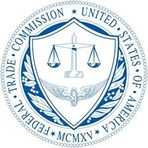The Shifting Sands of Power: Political Turbulence in America
March 20, 2025, 4:25 am

Location: United States, District of Columbia, Washington
Employees: 1001-5000
Founded date: 1914

Location: United States, District of Columbia, Washington
Employees: 1001-5000
Total raised: $500K
In the realm of American politics, the winds of change blow fiercely. Recent events have stirred the pot, revealing the intricate dance of power, accountability, and the quest for transparency. The recent promotions of IRS agents who investigated Hunter Biden and the abrupt firing of FTC commissioners by President Trump highlight a landscape fraught with tension and uncertainty.
The IRS saga surrounding Hunter Biden is a tale of redemption and controversy. After a lengthy investigation, the younger Biden faced serious charges, including tax evasion and illegal gun possession. The climax came when President Biden pardoned his son, a move that raised eyebrows and questions about the integrity of the justice system. Critics argue this act undermines the very principles of accountability. The narrative is as tangled as a spider's web, with implications that stretch far beyond the Biden family.
In the wake of this scandal, IRS agents Gary Shapley and Joe Ziegler received promotions. Their elevation is seen as a reward for their dedication to uncovering the truth. Yet, it also raises questions about the motivations behind such moves. Are these promotions a genuine acknowledgment of their hard work, or a strategic maneuver to placate critics? The political chessboard is complex, with each piece moving in response to the others.
Senator Chuck Grassley’s comments underscore the sentiment of many Republicans. He framed the promotions as a victory for whistleblowers, a beacon of hope in a system often perceived as corrupt. The narrative of accountability is powerful, resonating with those who feel disenfranchised by the political elite. Grassley’s words echo the frustrations of many who believe that the system should serve the people, not the powerful.
Meanwhile, the Federal Trade Commission (FTC) finds itself in the eye of a political storm. The recent firing of Democratic commissioners Rebecca Kelly Slaughter and Alvaro Bedoya by President Trump has sent shockwaves through the regulatory landscape. Slaughter’s warning about the potential erosion of market stability is a clarion call. Her assertion that the FTC’s ability to protect honest businesses is at risk is a stark reminder of the delicate balance between power and accountability.
The timing of these firings is suspect. With the stock market teetering on the edge of uncertainty, the implications of such a drastic move are profound. Slaughter’s comments suggest that the stability of the markets hinges on the integrity of regulatory bodies. When trust erodes, the entire system can falter. The market is a living organism, and instability can lead to chaos.
Trump’s justification for the firings rests on his interpretation of presidential power. He argues that he acted within his rights, a claim that has sparked debate. The legal ramifications of these actions could be significant. The precedent set by the 1935 Supreme Court ruling, which limited the removal of commissioners, hangs in the balance. The administration’s willingness to challenge this precedent speaks volumes about its approach to governance.
The tension between the executive branch and independent agencies is palpable. Trump’s administration has made it clear that it seeks to reshape the government, often at the expense of established norms. The DOGE initiative, overseen by Elon Musk, aims to streamline government operations but raises concerns about oversight and accountability. The balance of power is shifting, and the implications for democracy are profound.
As the political landscape evolves, the stakes continue to rise. The promotion of IRS agents and the firing of FTC commissioners are not isolated incidents; they are part of a larger narrative about power, accountability, and the role of government in American life. The question remains: who holds the reins of power, and at what cost?
In this turbulent environment, the voices of whistleblowers and regulators are crucial. They serve as the guardians of integrity, fighting against the tide of corruption and abuse. Their struggles resonate with the public, who yearn for a government that serves its citizens, not its own interests. The battle for transparency is ongoing, and the outcome will shape the future of American democracy.
The road ahead is fraught with challenges. As political players maneuver for advantage, the public watches closely. The need for accountability has never been more pressing. The lessons learned from the Hunter Biden investigation and the FTC firings will echo through the halls of power for years to come.
In conclusion, the shifting sands of power in America reveal a landscape of uncertainty and tension. The interplay between accountability and authority is delicate, and the stakes are high. As the nation grapples with these issues, the call for transparency and integrity grows louder. The future of American politics hangs in the balance, and the choices made today will resonate for generations. The dance of power continues, and the outcome remains to be seen.
The IRS saga surrounding Hunter Biden is a tale of redemption and controversy. After a lengthy investigation, the younger Biden faced serious charges, including tax evasion and illegal gun possession. The climax came when President Biden pardoned his son, a move that raised eyebrows and questions about the integrity of the justice system. Critics argue this act undermines the very principles of accountability. The narrative is as tangled as a spider's web, with implications that stretch far beyond the Biden family.
In the wake of this scandal, IRS agents Gary Shapley and Joe Ziegler received promotions. Their elevation is seen as a reward for their dedication to uncovering the truth. Yet, it also raises questions about the motivations behind such moves. Are these promotions a genuine acknowledgment of their hard work, or a strategic maneuver to placate critics? The political chessboard is complex, with each piece moving in response to the others.
Senator Chuck Grassley’s comments underscore the sentiment of many Republicans. He framed the promotions as a victory for whistleblowers, a beacon of hope in a system often perceived as corrupt. The narrative of accountability is powerful, resonating with those who feel disenfranchised by the political elite. Grassley’s words echo the frustrations of many who believe that the system should serve the people, not the powerful.
Meanwhile, the Federal Trade Commission (FTC) finds itself in the eye of a political storm. The recent firing of Democratic commissioners Rebecca Kelly Slaughter and Alvaro Bedoya by President Trump has sent shockwaves through the regulatory landscape. Slaughter’s warning about the potential erosion of market stability is a clarion call. Her assertion that the FTC’s ability to protect honest businesses is at risk is a stark reminder of the delicate balance between power and accountability.
The timing of these firings is suspect. With the stock market teetering on the edge of uncertainty, the implications of such a drastic move are profound. Slaughter’s comments suggest that the stability of the markets hinges on the integrity of regulatory bodies. When trust erodes, the entire system can falter. The market is a living organism, and instability can lead to chaos.
Trump’s justification for the firings rests on his interpretation of presidential power. He argues that he acted within his rights, a claim that has sparked debate. The legal ramifications of these actions could be significant. The precedent set by the 1935 Supreme Court ruling, which limited the removal of commissioners, hangs in the balance. The administration’s willingness to challenge this precedent speaks volumes about its approach to governance.
The tension between the executive branch and independent agencies is palpable. Trump’s administration has made it clear that it seeks to reshape the government, often at the expense of established norms. The DOGE initiative, overseen by Elon Musk, aims to streamline government operations but raises concerns about oversight and accountability. The balance of power is shifting, and the implications for democracy are profound.
As the political landscape evolves, the stakes continue to rise. The promotion of IRS agents and the firing of FTC commissioners are not isolated incidents; they are part of a larger narrative about power, accountability, and the role of government in American life. The question remains: who holds the reins of power, and at what cost?
In this turbulent environment, the voices of whistleblowers and regulators are crucial. They serve as the guardians of integrity, fighting against the tide of corruption and abuse. Their struggles resonate with the public, who yearn for a government that serves its citizens, not its own interests. The battle for transparency is ongoing, and the outcome will shape the future of American democracy.
The road ahead is fraught with challenges. As political players maneuver for advantage, the public watches closely. The need for accountability has never been more pressing. The lessons learned from the Hunter Biden investigation and the FTC firings will echo through the halls of power for years to come.
In conclusion, the shifting sands of power in America reveal a landscape of uncertainty and tension. The interplay between accountability and authority is delicate, and the stakes are high. As the nation grapples with these issues, the call for transparency and integrity grows louder. The future of American politics hangs in the balance, and the choices made today will resonate for generations. The dance of power continues, and the outcome remains to be seen.
